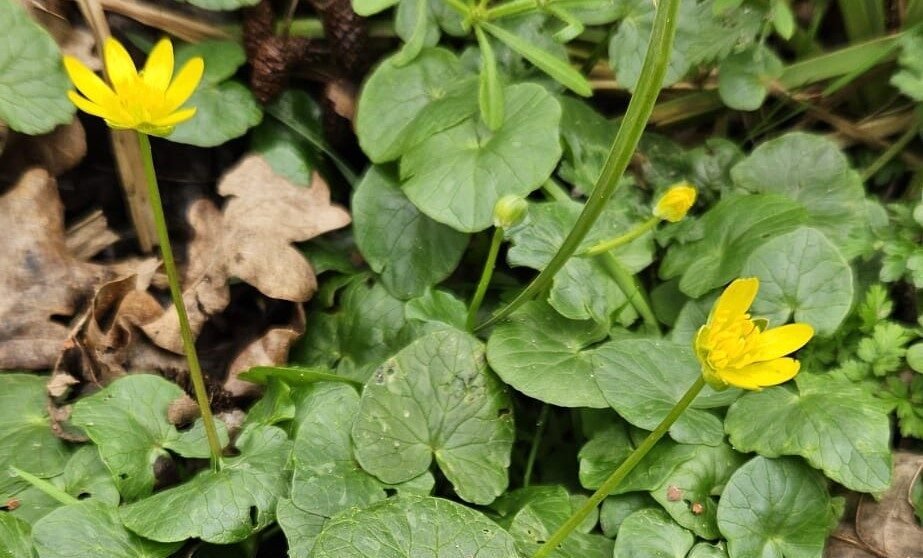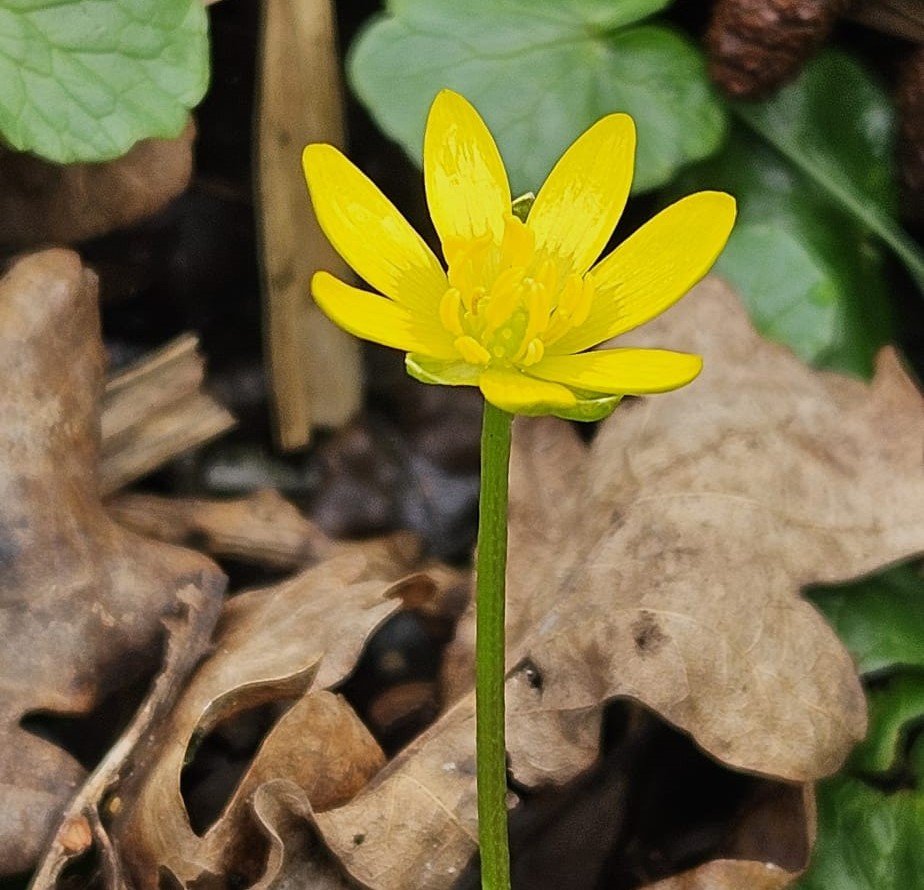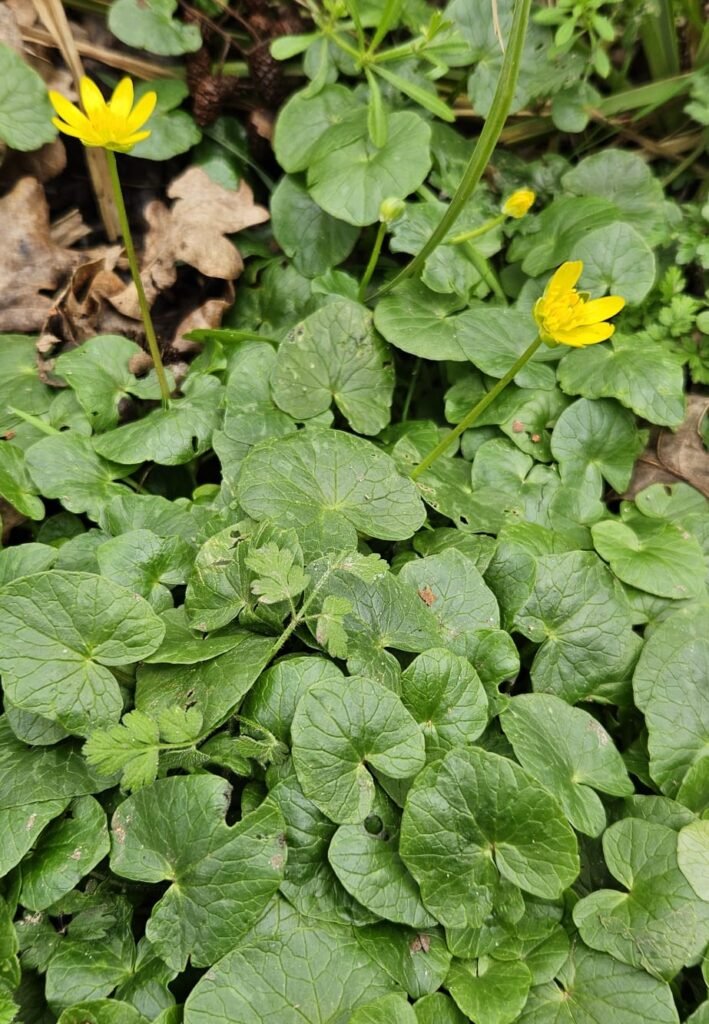
Lesser Celandine
(Ficaria verna)
Description
Lesser celandine is a perennial flowering plant. It has long stems with glossy, heart-like leaves at the end. There are four known subspecies of this plant. They come into bloom between March and April and their flowers are bright yellow, with between eight and twelve petals.

Distribution and interactions
Lesser celandine is a useful plant for pollinators. They are especially important sources of nectar to pollinators such as queen bumblebees because they bloom so early in the year.
These flowers grow in gardens, and wetland and woodland environments.
Folklore and uses
These flowers have been used as a symbol for the season’s change from winter to spring in The Lion, the Witch and the Wardrobe by C. S. Lewis. They have also been written about in poems such as Wordsworth’s To the Small Celandine.
Lesser celandine is poisonous when raw, but is safe to eat if it has been cooked.

To the Small Celandine
by William Wordsworth
Pansies, Lilies, Kingcups, Daisies,
Let them live upon their praises;
Long as there’s a sun that sets
Primroses will have their glory;
Long as there are Violets,
They will have a place in story:
There’s a flower that shall be mine,
‘Tis the little Celandine.
Eyes of some men travel far
For the finding of a star;
Up and down the heavens they go,
Men that keep a mighty rout!
I’m as great as they, I trow,
Since the day I found thee out,
Little flower!—I’ll make a stir
Like a great Astronomer.
Modest, yet withal an Elf
Bold, and lavish of thyself,
Since we needs must first have met
I have seen thee, high and low,
Thirty years or more, and yet
‘Twas a face I did not know;
Thou hast now, go where I may,
Fifty greetings in a day.
Ere a leaf is on a bush,
In the time before the Thrush
Has a thought about it’s nest,
Thou wilt come with half a call,
Spreading out thy glossy breast
Like a careless Prodigal;
Telling tales about the sun,
When we’ve little warmth, or none.
Poets, vain men in their mood!
Travel with the multitude;
Never heed them; I aver
That they all are wanton Wooers;
But the thrifty Cottager,
Who stirs little out of doors,
Joys to spy thee near her home,
Spring is coming, Thou art come!
Comfort have thou of thy merit,
Kindly, unassuming Spirit!
Careless of thy neighbourhood,
Thou dost shew thy pleasant face
On the moor, and in the wood,
In the lane—there’s not a place,
Howsoever mean it be,
But ’tis good enough for thee.
Ill befal the yellow Flowers,
Children of the flaring hours!
Buttercups, that will be seen,
Whether we will see or no;
Others, too, of lofty mien;
They have done as worldlings do,
Taken praise that should be thine,
Little, humble Celandine!
Prophet of delight and mirth,
Scorned and slighted upon earth!
Herald of a mighty band,
Of a joyous train ensuing,
Singing at my heart’s command,
In the lanes my thoughts pursuing,
I will sing, as doth behove,
Hymns in praise of what I love!